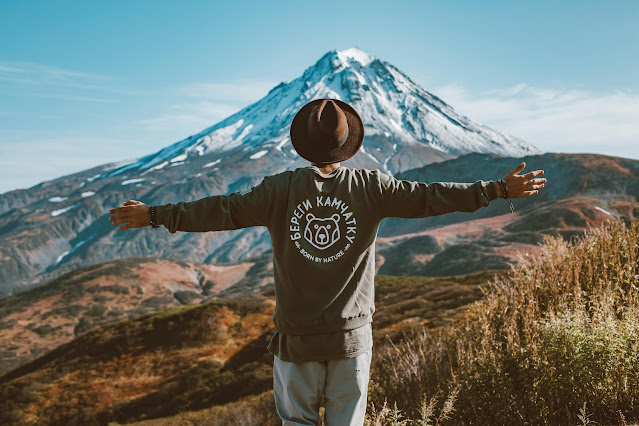Finding Peace in Our World: The Top 10 Most Peaceful Countries

In a world often filled with conflict, it's inspiring to know there are countries actively working towards peace. The Global Peace Index (GPI) is an annual report that ranks countries based on their peacefulness. This ranking considers factors like safety and security, ongoing conflicts, and how militarized a nation is.
This
year, Iceland once again claimed the title of the most peaceful country in the
world, holding the top spot for 17 years in a row! Let's explore the top 10
most peaceful countries in the world and see what makes them stand out.
Top
10 Peaceful Paradises
- Iceland: This beautiful island nation boasts a strong focus on
social welfare and education, along with a low crime rate. Despite a
slight decline in its score this year, Iceland remains a model for
peaceful societies.
- Denmark: Denmark's rise to the second spot is impressive. Their
low economic cost of violence and neutral military contribute to their
peaceful nature.
- Ireland: Maintaining its third-place position, Ireland shines
with strong social connections, a well-funded education system, and a
neutral military stance.
- New Zealand: As the most peaceful country in the Asia-Pacific
region, New Zealand has seen positive changes in areas like violent
protests and incarceration rates.
- Austria: Consistently ranking high, Austria excels in social
cohesion and education. They also boast a low economic cost of violence.
- Singapore: Climbing three places this year, Singapore ranks
second in the Asia-Pacific region. It's known for its low crime rate and
strong education system, despite having a high military expenditure.
- Portugal: A mainstay in the top 10, Portugal holds the fourth
spot in the militarization category and is recognized as Europe's fifth
most peaceful country.
- Slovenia: The sole Central European country in the top 10,
Slovenia emphasizes social cohesion and has a low militarization ranking.
- Japan: Moving up a spot this year, Japan scores highly in
safety and security and is the second most peaceful country in the
Asia-Pacific region.
- Switzerland: Re-entering the top 10, Switzerland is a stable and
secure nation. While they have a high rate of weapon exports, they boast
strong social cohesion and education.
Building
a More Peaceful World
These
peaceful nations inspire us to create a world where everyone can feel safe and
secure. By focusing on social well-being, education, and diplomacy, we can all
contribute to a more peaceful future.
This
list highlights the importance of social justice, education, and a focus on
resolving conflicts peacefully. As we strive for a better world, let's learn
from the examples set by these peaceful nations.
Conclusion
The
Global Peace Index offers a valuable window into the world's most peaceful countries.
It reveals that peace isn't just about the absence of war, but also about a
nation's commitment to social welfare, education, and resolving conflicts
peacefully.
The
top 10 countries on this list provide inspiring examples for others to follow.
From Iceland's focus on social cohesion to Denmark's low economic cost of
violence, these nations demonstrate the power of proactive peacebuilding
efforts.
While
the world still faces many challenges, the existence of these peaceful
countries gives us hope for a brighter future. By learning from their successes
and working towards similar goals, we can all contribute to a more peaceful
world.
FAQs
How
is a country's peacefulness measured?
The
Global Peace Index (GPI) considers three main factors:
- Safety and security: This includes measures of crime rates, political
stability, and internal conflict.
- Ongoing domestic and
international conflict:
This looks at a country's involvement in wars and other violent conflicts.
- Militarization: This considers a country's military spending, weapons
exports, and the size of its armed forces.
What
are some of the benefits of living in a peaceful country?
There
are many benefits to living in a peaceful country, including:
- A
safer community where residents feel empowered and protected.
- More resources available for
social programs and education.
- Enhanced prospects for economic expansion
and progress.
- A more stable and predictable
environment.
What
can we do to promote peace in our communities?
There
are many things we can do to promote peace in our communities, such as:
- Volunteering for organizations
that work on peacebuilding initiatives.
- Supporting educational programs
that teach about conflict resolution.
- Promoting tolerance and
understanding between different cultures.
- Practicing non-violent
communication in our daily lives.
By
working together, we can all help to create a more peaceful world.
.png)



Comments
Post a Comment